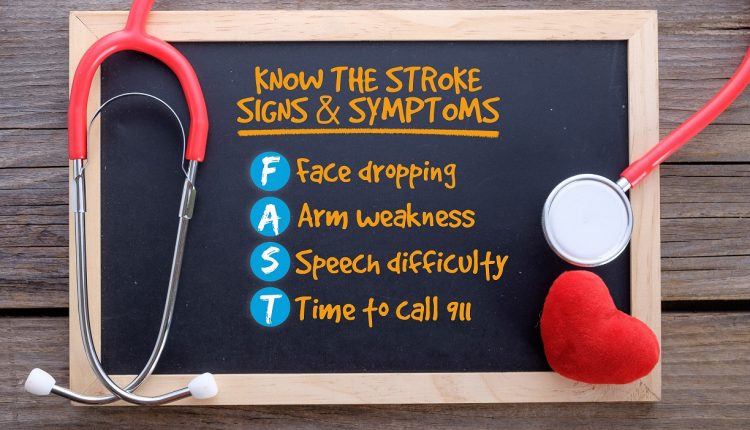
What is the Relation Between Stroke and Alzheimer’s Disease
Stroke and Alzheimer’s disease are two of the most common and challenging disorders in the world. In both cases, the damage is gradual, and it can take years for symptoms to appear. Strokes are cerebrovascular disorders that frequently present in seniors and are associated with Alzheimer’s disease or dementia development. Thankfully, there are ways to prevent both Stroke and dementia. By learning about the signs and symptoms of each disease, you can take the necessary steps to keep your brain healthy.
Contents
What is a Stroke?
Cerebrovascular or Stroke is the leading cause of death in people over 65, and it is caused by a blood clot that prevents the circulation of blood to the brain. As the blockage grows, it causes damage to the brain and leads to Alzheimer’s disease.
Strokes come in two types:
- Ischemic Stroke: Ischemic Stroke is the most common type and happens when a blood clot blocks an artery in the brain. This can cause loss of consciousness, aphasia (difficulty speaking), paralysis, and even death.
- Hemorrhagic Stroke: Hemorrhagic Stroke is when a ruptured blood vessel in the brain causes a lot of blood to flow out. Patients with Alzheimer’s disease are at a higher risk of hemorrhagic stroke but not ischemic Stroke when compared to non-AD patients with comparable risk profiles.
Stroke is caused by many things, including high blood pressure, heart disease, obesity, and Diabetes. And, as with many diseases, stroke risk increases with age.

Strokes: Symptoms and Signs
A stroke is a severe medical condition that can cause serious damage to your brain. Stroke and Alzheimer’s disease frequently coexist; however subtle brain abnormalities may start years before a clinical stroke manifests. There are a number of signs and symptoms of a stroke, and it is imperative to seek immediate medical assistance if you experience any of them. The following are some of the most common stroke symptoms:
- Sudden numbness or weakness on one side of the body
- Confusion or difficulty thinking
- Sudden trouble speaking
- A sudden change in balance, especially when you are trying to walk or stand.
- Seizures or blackouts
Stroke and Dementia
There are several forms of dementia, but Alzheimer’s disease is the most common. It destroys brain nerve cells by clogging them up and causing them to die.
There is no definitive cause of Alzheimer’s disease, and a single event or exposure does not cause it. Rather, it is the result of a combination of genetic and environmental factors like strokes that, over time, damage the brain.
Alzheimer’s disease occurs most often in people over 65, but anyone can get it. Even though Alzheimer’s disease does not have a cure, seniors can take advantage of many prevention methods. Concerning stroke and dementia, by reducing the risk of a Stroke, you may help lower your chances of developing a range of unwanted conditions such as Alzheimer’s, Mild Dementia, or vascular dementia.
What are the Signs and Symptoms of Alzheimer’s Disease?
The early signs and symptoms of Alzheimer’s disease can be difficult to identify. However, if you or a loved one is experiencing any of the following signs or symptoms, it may be an indication of the disease:
- Memory problems
- Difficulty with reasoning
- Disorientation
- Personality changes
- Problems with communication
- Hallucinations
What is the Link Between Strokes and Alzheimer’s Disease
Our brains naturally shrink a little bit with age, but they don’t lose a lot of neurons. But when someone develops Alzheimer’s disease, neurons stop working properly, neurological connections and pathways are gradually lost, and eventually, these neurons start to die in significant numbers.
In the case of a Stroke, the blood flow to a portion of your brain is cut off during a stroke, which kills brain cells. A stroke’s lingering effects can result in issues with memory and thought (cognitive problems). Many people see improvements in these issues over time.
It’s interesting to note that the brains of about half of all Alzheimer’s patients show signs of previous strokes. The disease initially targets the hippocampus and entorhinal cortex, two regions of the brain important for memory. More significant regions of the brain, such as the cerebral cortex, which controls language, logic, and social behaviour, are affected as the disease worsens.
How to Minimize Stroke and Alzheimer’s Risk
We currently know that specific medications and lifestyle changes can prevent cerebrovascular illness. For instance, stroke risk factors include cardiovascular (heart) disorders, diabetes, high blood pressure and cholesterol, inactivity, and a poor diet. It has been suggested, though, that these risk factors may also be related to Alzheimer’s. Although the findings of several studies suggest it is conceivable, researchers do not know whether better control of vascular risk factors can translate to a reduction in the risk of dementia.
How is Vascular Dementia Linked to Stroke?
There has been a growing body of research linking stroke and dementia, vascular disease, and neurodegenerative diseases like Alzheimer’s. Vascular dementia is a term that broadly refers to issues with reasoning, planning, judgment, memory, and other thought processes that are brought on by brain damage from decreased blood supply to your brain.
Strokes do not always cause vascular dementia; nevertheless, they can occur after a stroke clogs an artery in the brain. Your Stroke’s severity and location will determine whether it has an impact on your thinking and reasoning. Other disorders that harm blood vessels and lessen circulation depriving your brain of essential oxygen and nutrients, might cause vascular dementia as well. Vascular dementia symptoms often overlap with those of other Alzheimer’s diseases. In order to avoid confusion, check out Vascular Dementia, Everything You Need to Know.
Final Words
Alzheimer’s is a terrible disease affecting millions of people worldwide.
According to research, stroke and Alzheimer’s are closely associated disorders since Alzheimer’s causes strokes, and strokes can exacerbate Alzheimer’s symptoms. The ideal course of action is to take precautions to halt the onset of Alzheimer’s in stroke survivors, to stop a stroke in Alzheimer’s patients, and to prevent both diseases in healthy people completely.

Is there any drug interactions between medications used to treat stroke and those used to reduce Alzheimer’s symptoms?
I experienced a sudden stroke once. I sat at my desk working on a project for my job, and a sudden jolt of pain shot through my head. It was like nothing I had ever experienced before. The room began to spin, and I felt disoriented and confused. I tried to speak, but the words came out slurred and jumbled. I was rushed to the hospital, and as I lay on the stretcher, I couldn’t help but feel scared. It wasn’t until days later, after countless tests and consultations, that I learned I had suffered a stroke. The road to recovery was long and challenging, but with the help of my doctors, therapists, and loved ones, I slowly regained my ability to speak, move, and think clearly.